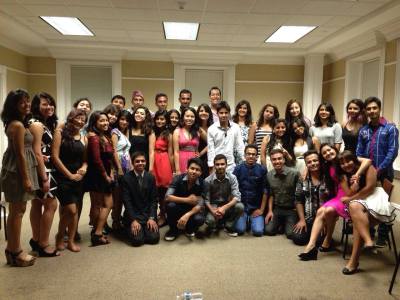Ryan Lake
Reporter
 Mississippi University for Women has seen a large increase in its international student population this year, especially from Nepal.
Mississippi University for Women has seen a large increase in its international student population this year, especially from Nepal.According to the Shelly Moss, director of admissions, 16 students have made the two-day, 8,000-mile journey from Katmandu, Nepal, to Columbus, Miss., to pursue their educations this fall. The nearly 50-percent increase in international students to 51 has many wondering what is driving the growth.
However, that increase doesn’t surprise sophomore Nepali student, Seema Neupane.
“The education and scholarship brought me. Scholarship because I can’t afford education otherwise, none of us (Nepalese students) can,” Neupane said.
According to Neupane, the trend has been building over several years.
The opportunity offered by scholarships is what brings students from other countries, according to Doyin Adebowale, former president of the International Student Association on campus. However, that’s not the only thing that attracts them to the W.
“I found what I was looking for,” said Adebowale. “I would say when I first came I was skeptical, but once I got here, I was glad I came.
Adebowale hopes to see more students from other countries join the W family, a sentiment shared by Billy Simmons, the International Student Services coordinator.
“In the past there used to be a large African component on campus, and that slowly deteriorated and now it’s mostly Nepali—Moving forward I would like to see that trend be more broad, “said Simmons.
The influx in Nepali students has also caused a change in the student organization landscape with the creation of the Nepali Student Association. The president, Shrishti Khati, was exuberant at the new opportunity for Nepali students.
“It would be a chance to promote our traditions and culture to [the] university. It will also give a homey environment to the incoming freshman,” said Khati.
Some have questioned whether the formation of the NSA would cripple the International Student Association. However, Khati was quick to head off those concerns.
“NSA is just the baby organization of ISA. We are not separating from it at all. It’s just that everyone knows ISA has so many countries involved in it, celebrating everyone’s celebrations, everyone’s small single festival is not possible through ISA. So we thought having our own small community would give us a chance to come out more. We are taking parallel course and whenever priority calls, ISA will come first.”
The primary focus of the NSA for this semester will be to focus on establishing the culture and tradition of Nepal on the W campus.